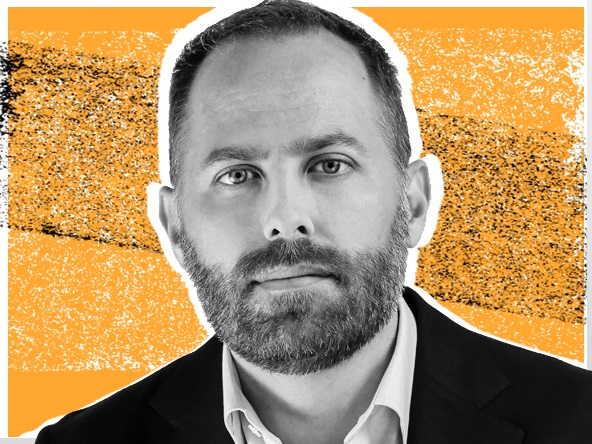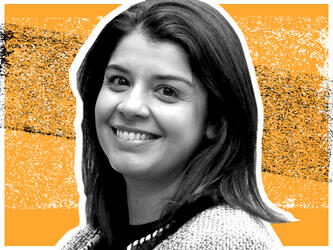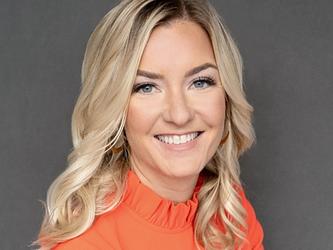How I work: Michael Ramlet, CEO, Morning Consult

What does a typical day look like?
Typically, in the middle of the week I’m either in the office or travelling, and then I finish the week at home. We have been supportive of hybrid work – we really believe it is the future of working, and I need to demonstrate that as a leader and be supportive of our teams across the country and across the globe.
Do you prefer home working or the office?
What it comes down to is what is going to empower our workforce. The ability for us to recruit the best, most talented technologists across the world requires us to be supportive of meeting those individuals wherever they are. Probably around 70% of our workforce is some form of hybrid or remote.
I am really excited when I can meet folks in person – there’s nothing like that social rapport – but equally, it is exciting to work with people in four different time zones in one Zoom/hybrid environment. I don’t think the genie is going back in the bottle. From our standpoint, it is a chance to recruit technology talent and expertise we wouldn’t have been able to recruit if we were based in one location.
What is on your daily agenda at the moment?
What we’re looking at right now is how quickly decision making is changing in organisations. The current economic environment and geopolitical risk pieces go beyond what traditional market research has been dealing with on the insight side of the equation. Are we breaking down our own siloes to better serve our clients? And are we helping clients to break down siloes?
Geopolitical risk elements are forcing folks to think about different scenarios over a different timeline. If you are focusing on more traditional environment, you are assuming greater stability over the past 10 to 15 years than we are seeing now.
What motivates you in your career?
It sounds simple, but it really is the people. It started with my co-founders – I was fortunate to have totally different skillsets to my co-founders, one of whom is a data scientist and the other a computer scientist, and it allowed us, on day one, to tackle problems in a collaborative way.
The subjects we often work on go beyond what most people think of as market research. The Federal Reserve, the European Central Bank, the Bank of Japan – they are using our data to make decisions on things like interest rates, and that has consequential impacts on communities where we live and the macroeconomic climate. Our staff are proud of who we work with, but really they’re proud of what they’re doing.
What is your style of working?
When we were in a traditional office setting, if I can get the right folks in a room, and think through the structure of a problem or an opportunity, I think that’s the most exciting environment I found myself in. Doing that in a hybrid setting requires different tools. We have a number of different collaboration software. We are continuing to evolve our thoughts on what the future of hybrid work looks like. In some cases, it is just as simple as getting people to breakfast and into one setting, but it is also the ability to make resources available to rent a conference room and get together – recognise some of it is the social aspect.
How have you found the shift to hybrid in terms of connecting with people?
It is one of the aspects you miss, the energy of being in person. People are going through different moments in their lives. We have a lot of new parents, for instance, and if I’m home and not travelling, I can stay home and make breakfast for my two girls, aged two and four. That allows you to have the balance, as it is a high-intensity role.
The hybrid structure allows you to step back and gives great perspective. It allows you to have a little bit more balance. For our staff, it allows them to have the ability to relocate to places where they are closer to family. We recognise folks have lives and should have lives outside of Morning Consult.
How do you achieve a work/life balance?
It has been identifying situations where I can make a commitment and then to block it. It is the ability to make breakfast in the morning for my daughters, or dedicate time around bedtime and dinnertime. I am often more responsive after seven or eight o’clock, after my daughters have gone to bed.
We have an unlimited vacation policy – it is recognising that while we have high-intensity in the work we do, we have to have balance with it. If you want to take a trip, we should plan around it, and be transparent around client demands and product roadmaps might be, but we also need to be able to support that.
How does the unlimited vacation policy work in practice?
It starts with trust – you have to trust colleagues will execute at a high level. The idea we are still in a ‘punch-in, punch-out’ culture is unrealistic. One of the things we did to take it a step further is to set aside time – we will often book in holiday weekends, and where if there is a public holiday on the Monday, there will be an in-office holiday on the Friday. We will do that across the summer period – we want to make sure we are creating that window [for breaks].
If we are to have a high-intensity, high-performance culture, we need a thoughtful strategy about how we let folks recharge. If you give yourself a little bit of a break, there’s a little bit of stress you can let out of the teapot. It is cutting yourself some slack. It is collectively you try to get better every day, and sometimes you are better some days than others.
How do you think working practices in the industry are shifting?
When I look across the industry, I see a lot of organisations that haven’t adapted and haven’t made the technology investments. I think that will be the big bifurcation – the future of work is whether you are investing in technology or working in an organisation that has made those investments, as that will be a completely different working environment. We are doing higher quality work and getting greater efficiency out of it. What shocked me the most about the industry is that people are not investing to push the innovation aspect.

We hope you enjoyed this article.
Research Live is published by MRS.
The Market Research Society (MRS) exists to promote and protect the research sector, showcasing how research delivers impact for businesses and government.
Members of MRS enjoy many benefits including tailoured policy guidance, discounts on training and conferences, and access to member-only content.
For example, there's an archive of winning case studies from over a decade of MRS Awards.
Find out more about the benefits of joining MRS here.














0 Comments